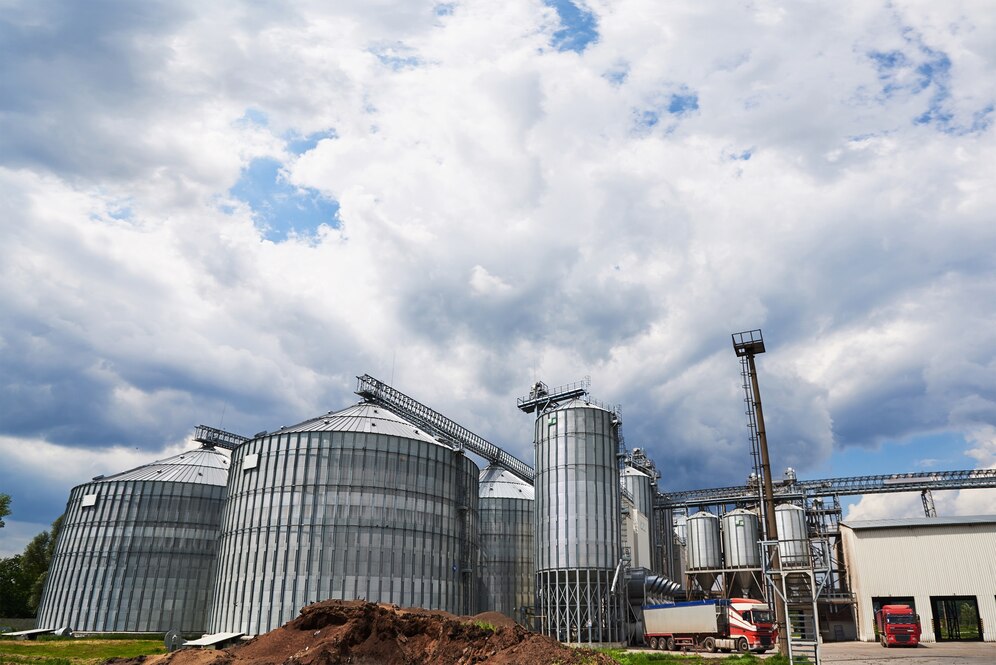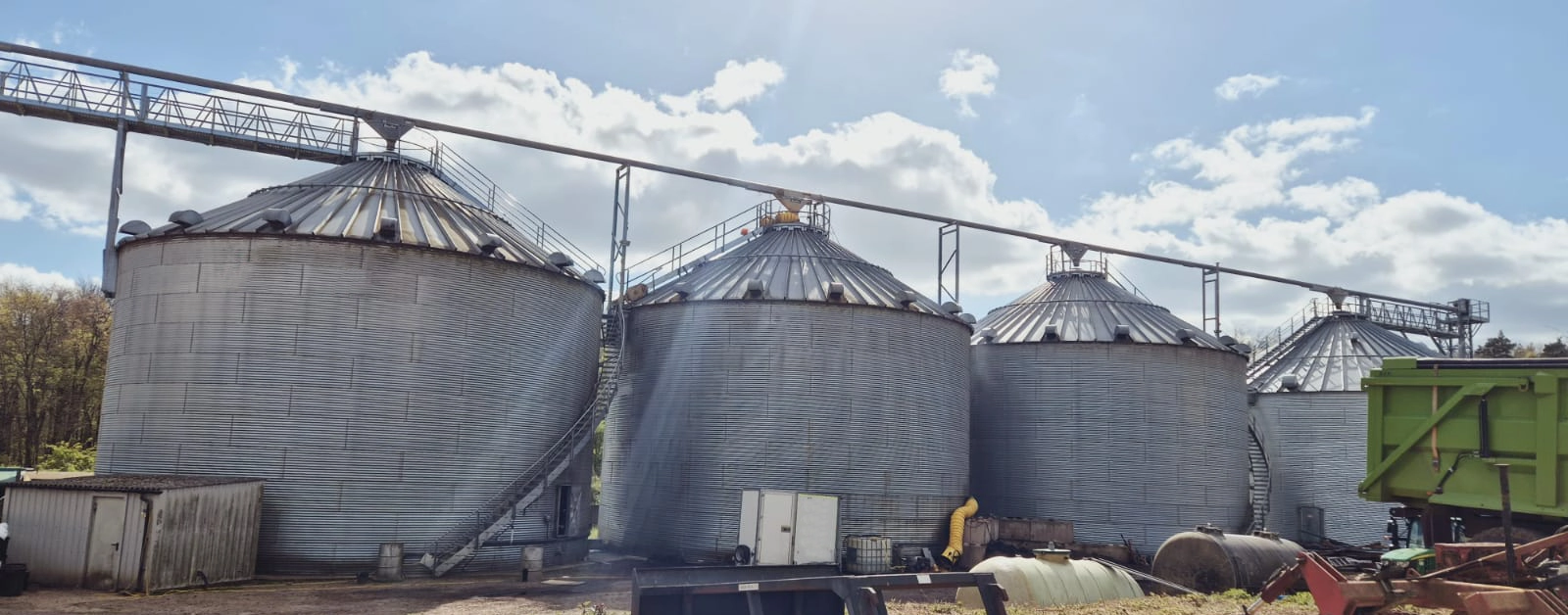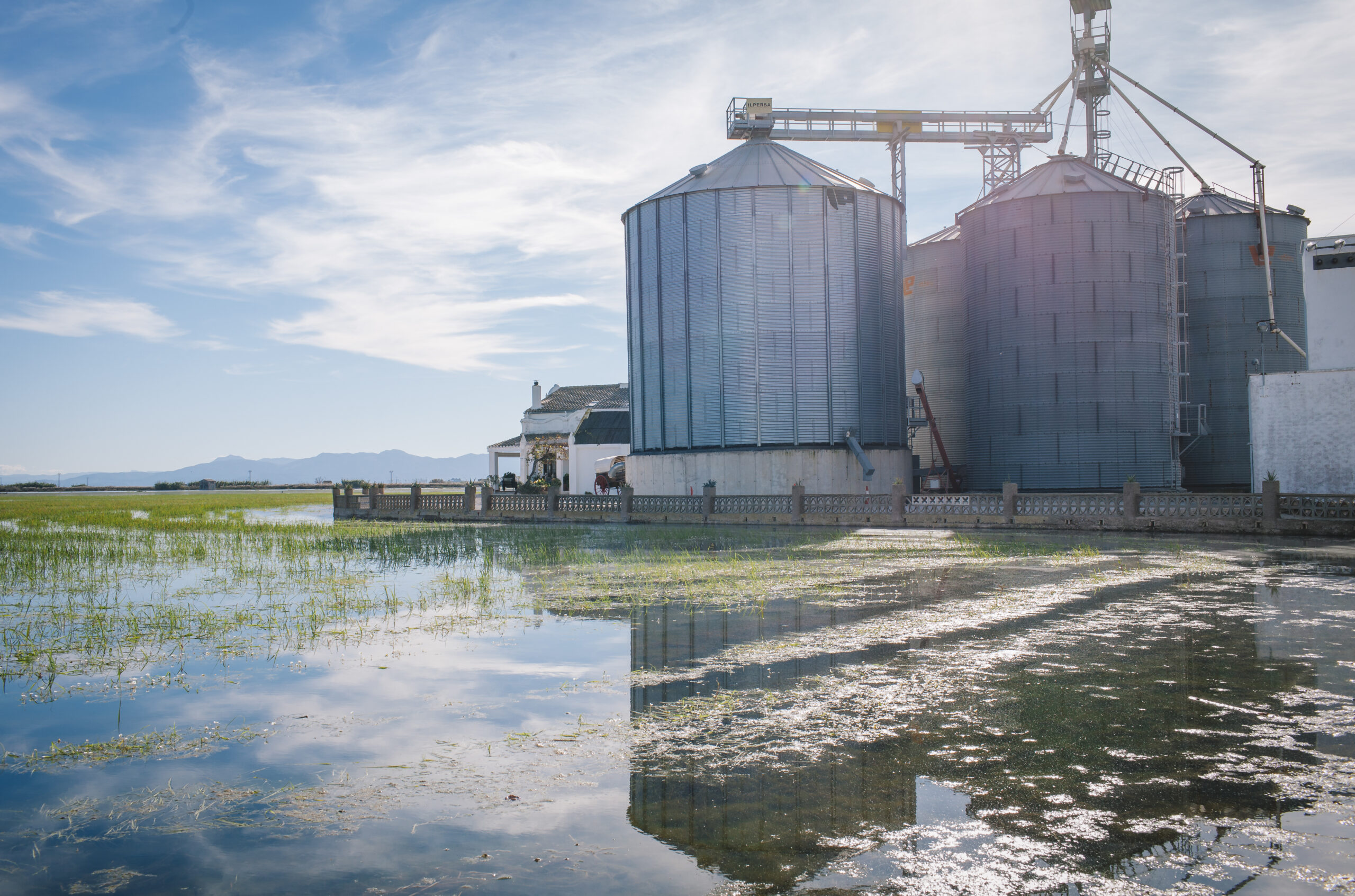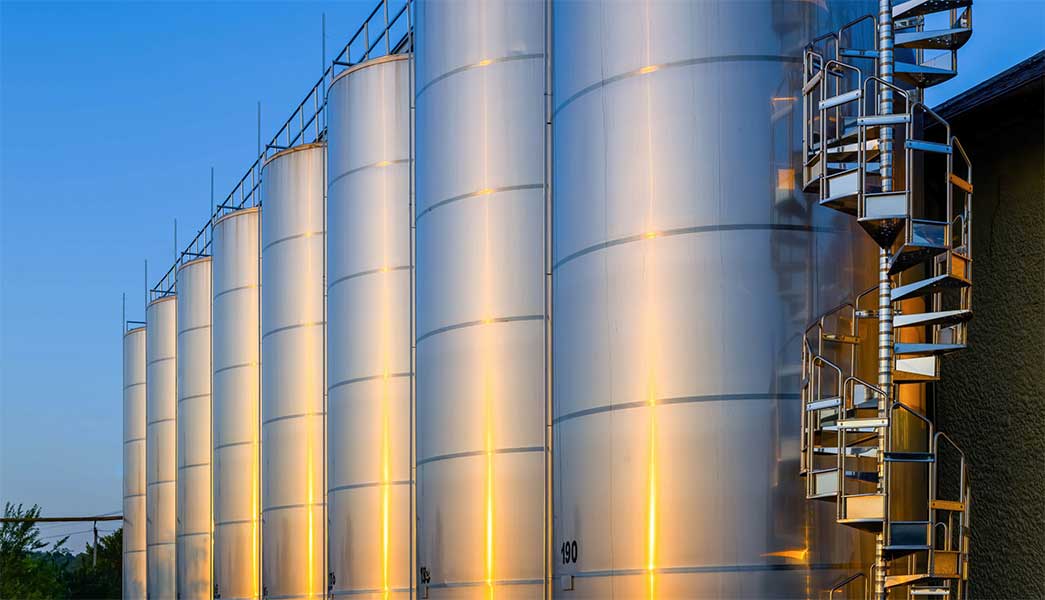Silos are supersized containers most commonly seen on farms, yet they also have uses in other industries. Silos are usually cylindrical in shape and serve many purposes, including storing grains and holding a variety of materials. They are a key component of the food industry and an important part of the supply chain. As populations grow, the demand for silos becomes ever greater.
What are silos used for?
In agricultural settings, silos typically store wheat and grain. The substantial capacity means that large quantities of material can be stored securely and away from the harsh environmental elements. However, it is not just food that silos can store. Other materials such as wood chippings and even cement can be stored for future use.
Animal Feed
But silos are equally common for storing silage, otherwise known as fermented farm feed for animals. The airtight conditions means that silage can remain hydrated during storage. Silos holding silage are not reliant on favourable weather conditions either. This makes silos a popular option for farmers and agricultural workers.
What are the benefits of using a silo?
Although primarily used for storage, most types of silos also help to prevent damage to the produce inside. They stop moisture and mould, keep grains and wheat away from ultraviolet light, and prevent insects from coming into contact with food produce. Other uses include the prevention of cross-contamination from chemicals.
Types of silos available
Silos come in numerous shapes and sizes. The type of silo varies according to its intended purpose. For example, large sealed silos used to store grain or farm feed are invariably larger than silo bags. In many cases, silos will have an unloading mechanism, usually at the footer of the silo. This allows the contents to be easily removed, collected, and then transported, such as to distributors.
There are three major types of silo. These include aerated silos, sealed silos, and silo bags. We discuss the differences of each variety below:
1. Aerated Silos
Most commonly used for the storage of finer materials, such as powders or types of grain. An aeration device attached to the silo can help to speed up collection and keep finer grains in the best condition possible.
2. Sealed Silos
Sealed silos are what most people think about when they hear the word ‘silo’. A sealed design prevents the contamination of food produce by eliminating access to the silo by insects and UV light.
3. Silo Bags
Perhaps the most economical type of silos, silo bags are most commonly used to store grains on farms. The nature of silo bags means even wet grains can be stored. The multi-layer construction is effective at keeping grains away from environmental damage, such as ultraviolet light.
For silo cleaning & maintenance, contact ACS Cleaning
ACS Cleaning provides professional, accredited silo cleaning and maintenance services for food production and other industry sectors.
Our long track record of over 25 years experience means you can trust us to clean and repair your silo with minimal disruption to productivity. We ensure the condition of your silo meets all HSE and food standards requirements. We also offer 24/7 emergency support for high priority silo maintenance or cleaning. Get in touch with us today to book a site visit.




